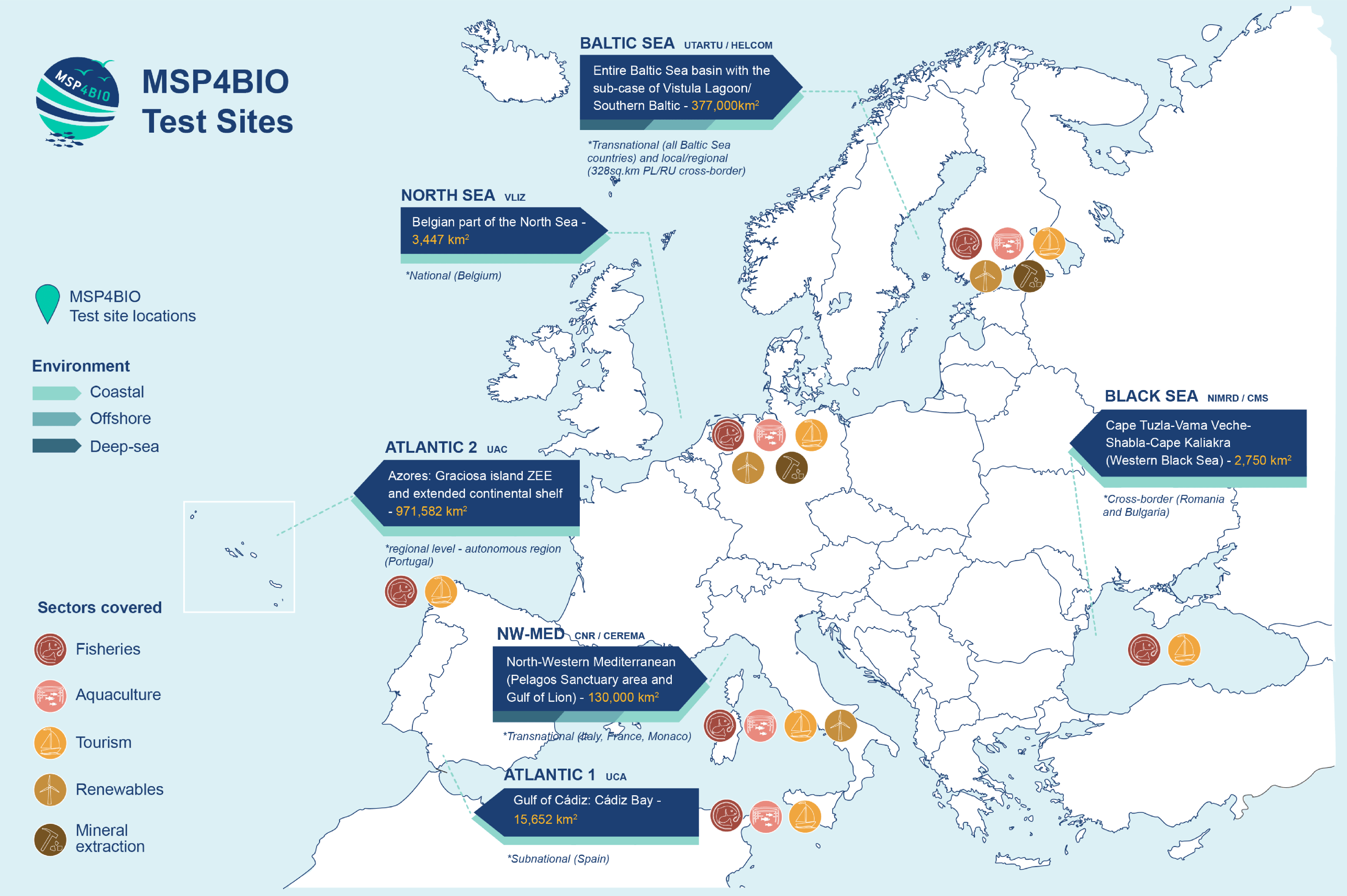Authors:
Inne Withouck, Flanders Marine Institute – VLIZ
Isabelle Rombouts, Flanders Marine Institute – VLIZ
Margarita Stancheva, Center for Coastal and Marine Studies – CCMS
Fien De Raedemaecker, Flanders Marine Institute – VLIZ
Natascha Jaspert, s.Pro – sustainable projects
Ivana Stojanovic, s.Pro – sustainable projects

Analysing the coherence of maritime polices and management tools, and their effectiveness for conservation targets is crucial for advancing knowledge-based Maritime Spatial Planning (MSP).
In the six MSP4BIO test sites across five European sea basins, a thorough gap analysis identified several issues, divided into four categories, that hampered the effective integration of marine protection and MSP. This was validated with the Communities of Practice (CoPs) in the test sites made up of MSP and MPA authorities, sectoral representatives, researchers and environmental organisations.
Current status of MPA network: Many MPAs suffer from inadequate design, such as insufficient coverage of key species, habitats, or vulnerable locations. Climate change and the importance of ecological connectivity are not sufficiently addressed, weakening the long-term resilience of protected areas. Furthermore, there is a growing need to incorporate social and economic criteria in the designation of MPAs to ensure sustainable outcomes for both communities and ecosystems.
Coherence of MPAs, MSP, and other governance: A lack of financial and human resources was a common issue across test sites, alongside a need for better coordination between management processes, especially between MSP and MPAs.
Consideration of social and economic activities within MPAs: Decision-making in MPAs often neglects to consider the pressures of competing activities such as shipping, tourism, and fishing. This oversight leads to conflicts that undermine the long-term viability of both ecosystems and local industries.
Stakeholder confidence: Social acceptance and stakeholder engagement in management endeavors are a vital part of MPAs to succeed and although engagement mechanisms across test sites are in place, overall confidence in ecosystem-based MSP is low. Stakeholders struggle to see the interlinkages of ecosystem services and economic activities and growth, hindering broad support for conservation efforts.
Read the full post here!
If you want to dive deeper into the findings and recommendations, download the report here. Keep up with MSP4BIO as we drive innovative solutions for maritime spatial planning and biodiversity conservation.
